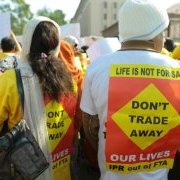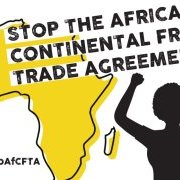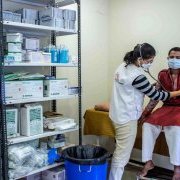12-Jul-2024
Policy Circle
The India-UK FTA is expected to promote the free movement of goods and services, significantly impacting access to pharmaceuticals, medicines, and devices. FTAs pose new challenges for public health activists in India, necessitating appropriate actions to monitor and advocate for change. This is particularly important for public health advocates concerned with the broader commercial determinants of health.
4-Jul-2024
Indonesia AIDS Coalition
Indonesia for Global Justice (IGJ) and the Indonesia AIDS Coalition (IAC) criticized the I-EU CEPA, which hijacked the people’s rights to democracy while ignoring the negotiations’ wider impact. The I-EU CEPA negotiations lacked transparency, ignored public aspirations, and did not allow for meaningful participation from civil society groups.
2-May-2024
Peoples Dispatch
It is no coincidence that just five days before the amendments were announced, India signed a Free Trade Agreement with the European Free Trade Association.
13-Oct-2023
bilaterals.org & GRAIN
So what does this trade deal mean for ordinary Africans in a time of deep climate, economic and food crises?
30-Jun-2023
Heinrich Böll Stiftung
Can India protect its development objectives by signing a free trade agreement with an unequal partner with different ambitions?
20-Mar-2023
The Telegraph
Groups from India and nearly 40 countries express concern about a leaked chapter from the proposed FTA that they say appears to represent ‘a wish list’ of the pharmaceutical industry.
26-Apr-2022
Business Today
After the Comprehensive Economic Cooperation Agreement signed between India and Australia, the domestic pharmaceutical industry is seeing a plethora of opportunities for international trade.
1-Feb-2022
New Internationalist
On farmers and food, vaccine inequality, climate justice and digital rights, we need to act in solidarity – and not allow trade rules to sacrifice people to corporate profit.











